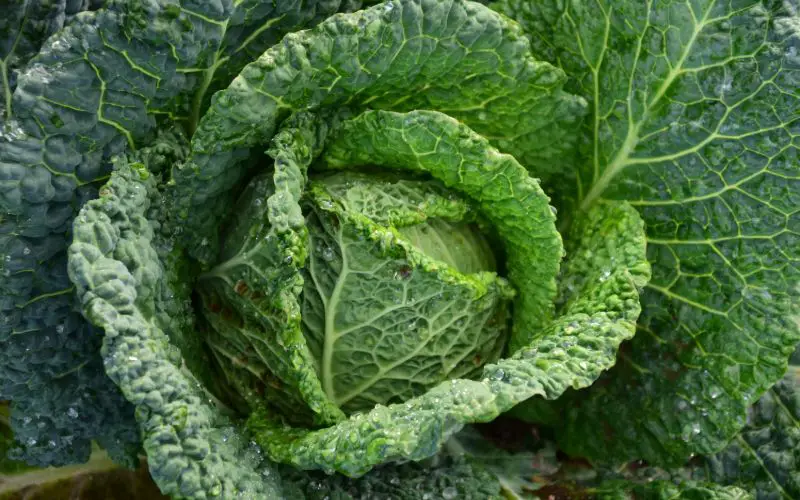Who doesn’t love to feed a variety of food to their horses? Ever since I started raising horses, I research before I feed something for the first time. Recently, I bought some cabbage for my horses; fortunately, I researched online before I fed them. But I realized, there are different perspectives about feeding cabbage to horses. Some websites claim that cabbage is healthy for horses, whereas some claim, it isn’t. So I discussed with a few horse breeders and veterinary doctors, and here is what I learned.
Can horses eat cabbage? Yes, they can. In fact, most of the horses love cabbage. But feeding large quantities of cabbage can severely affect their health. The best way to feed cabbage is to mix only a small fraction of cabbage in your horse’s feed.
Why is Cabbage Unhealthy?
Cabbage can cause stomach gas problems in horses, just the way it does in humans. But horses like the taste of cabbage. Some of my fellow breeders report that their horses like cabbage more than other vegetables. But they have also observed gas problems afterward. Unfortunately, very few people know cabbage should be fed and how beneficial it is for horses.
Why Should You Feed Cabbage to Your Horse?
Cabbage is healthy for your horses if you feed properly. Almost every vegetable contains at least one unique nourishing nutrient, and this is why a variety of vegetables should be fed to maintain good health.
Similarly, cabbage contains vitamin-K1, vitamin-K2, vitamin-C, vitamin-B6, Potassium, and Magnesium. Besides, it contains antioxidants that are beneficial for chronic inflammation.
My neighbor, who has been breeding horses for a long time, recommends feeding cabbage to horses. He believes, cabbage keeps their immune system strong. But he also insists upon feeding cabbage in proper quantity.
Cabbage Feeding
Evidently, cabbage is not entirely harmful to horses, but it must be fed in limited quantity, two to four ounces a day.
But is that all? Actually, you shouldn’t feed cabbage without shredding or at least slicing. Cabbage is easier to digest without any gas problems if mixed in a salad.
Furthermore, cabbage is more beneficial if fed in dry form as it prevents stomach ulcers. According to research, 90% of horses experience stomach ulcers at any stage of their life. But adding dried cabbage to their feed can help in reducing the chances. Dried cabbage contains glutamine, which is beneficial for protection against stomach acids that cause ulcers. Some horse breeders suggest mixing dried apples, carrots, and oat flour along with dried cabbage; it makes them taste even better.

How to handle over-consuming?
If you think or horse is showing symptoms of over-consuming or feeling uncomfortable. There are some recommendations to follow in this condition.
Allow your horse to rest by laying down and rub body smoothly. After some time the horse will feel comfortable. If you think this practice did not work for him, consult a veterinarian. Normally if gas pain hurts him or feels uncomfortable, the veterinarian will give analgesics to get rid from pain.
Nutritional Facts of Cabbage
If we use cabbage in a proper way, here are some nutritional facts about horses according to Healthline.
| Calories | 22 |
| Protein | 1 Gram |
| Fiber | 2 Gram |
| Vitamin C | 54% of RDI |
| Potassium | 4% of RDI |
| Vitamin K | 84% of RDI |
| Folate | 10% of RDI |
Table source Healthline.com
Which Other Vegetables Can Be Harmful to Horses?
Apart from cabbage, there are several other vegetables that you should avoid feeding your horse. Vegetables such as spinach, cauliflower, potatoes, onions, broccoli, Brussels sprouts, peppers, and tomatoes are not suitable for horses. Just like cabbage, these vegetables can cause gas and digestion problems. Although horses look strong, they have a sensitive digestive system.
Just in case if you feed anything that causes gas, diarrhea, or any digestion problem, avoid feeding that particular thing.
FAQ’s
Why is cabbage bad for horses?
The only side effect of consuming or over-consuming cabbage is the gas buildup in the stomach. That is uncomfortable and painful for horses. It can cause colic problems. Some hard-working or strong breeds are resistant to gas and you can feed them cabbage in a reasonable amount. However, avoid cabbage to susceptible breeds or a horse who already has gas problems. If your horse over-consume allows him to lay down or bring to the veterinarian for treatment.
Read More >>>> Can Horses eat oranges
Read More >>>> Can Horses eat Bananas







